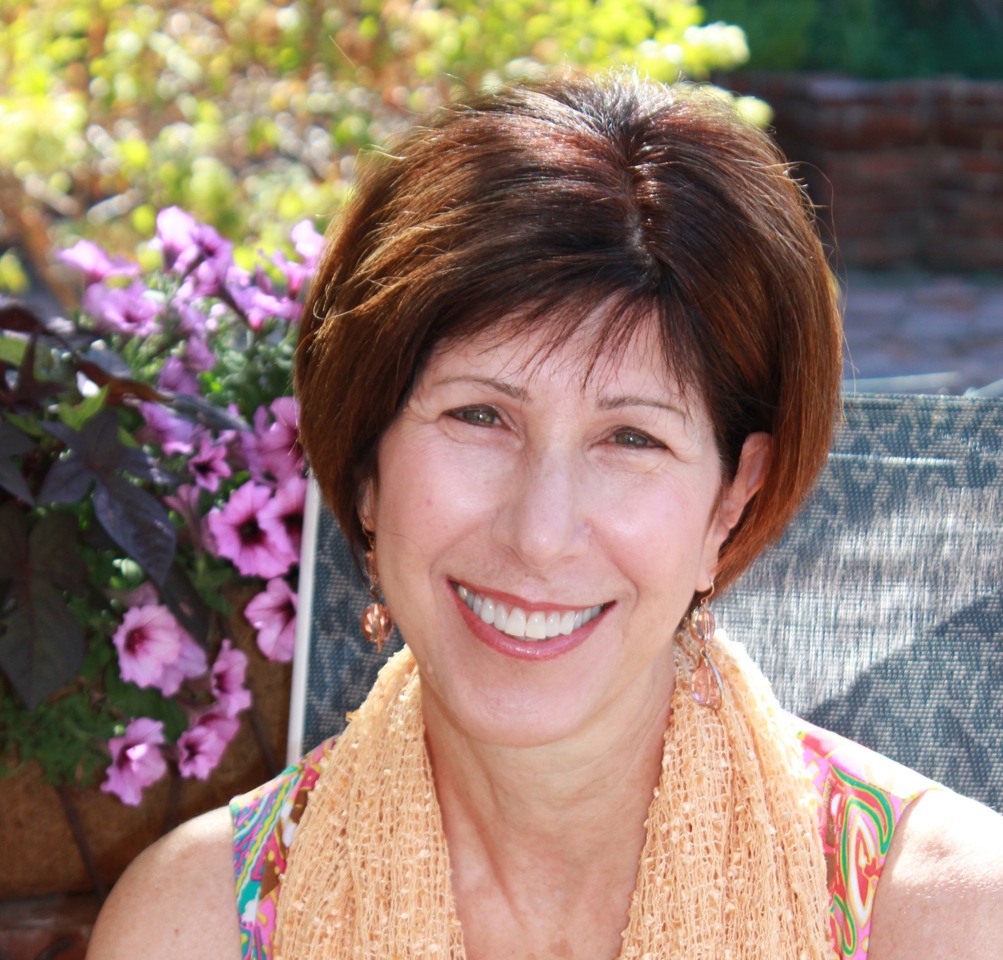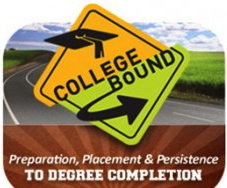
I don’t think you know what you are capable of until you have the opportunity to discover it. When we started College Bound, our rallying cry was, “We will do whatever it takes to serve these students and get them to their goal!”
1. What led you to the mission of being a social entrepreneur?
I don’t think I woke up one morning and said, “I want to be a social entrepreneur.” I experienced a really strong dissatisfaction with the status quo. I felt that something had to change. I did research about what existed to create educational equity and didn’t see anything along the lines of what I had in mind. What I had in mind was a whole child approach to preparing students for a different socio economic reality. The path to that reality was higher education. The motivation to start College Bound was to express purpose and a belief that the status quo was unacceptable, and that we are called to action by forces in the universe that present themselves.
What led to College Bound was a combination of my personal history – a mom who was an activist and  teacher, being able to grow up in an integrated neighborhood, and having a modest background. Later as an adult, I was able to experience the world of privilege. I thought, “Wow! These worlds are completely parallel. What the children are experiencing in the world of privilege is completely apart from what children are experiencing in city schools and neighborhoods.
teacher, being able to grow up in an integrated neighborhood, and having a modest background. Later as an adult, I was able to experience the world of privilege. I thought, “Wow! These worlds are completely parallel. What the children are experiencing in the world of privilege is completely apart from what children are experiencing in city schools and neighborhoods.
I felt passionate about my purpose to feel really connected to everybody. It was this constellation of ingredients or factors that came together at a point of time that allowed me to get some traction.
2. What does this mission mean to you?
This mission means that I think about innovating us out of the status quo. Things don’t change without something catalytic. There are models that show four percent out of one hundred people are entrepreneurs, thirteen percent are early adopters, and it moves on to laggards. Those are the people who join after everybody else is doing something. They move to participate – like, “Oh fine. I’ll get a cell phone,” (twenty years after everyone else already has one).
On the other hand of the spectrum are people who are really willing to say, “Yah. I’m going to do this.” Everyone else is saying, “You are really crazy! That’s not going to work! There are going to be a lot of headaches!” Those people might be right. Being an entrepreneur might be a lot of work. So to move forward, you have to be really satisfied with something and feel you have a better way of doing it. That better way of doing it will ultimately be successful. Anybody who is an entrepreneur of any sort, or a champion of any sort, has to be willing to fall down a lot. One of my colleagues says, “Stumble forward.”
The decision for me to become a social entrepreneur was a very deep sadness about something that I believed could be better. I didn’t see it happening, so I thought, “We’ll do something.” I wanted to change the opportunities that impoverished kids were not able to have any line of sight to go on to college. When we met our kids in high school, they had no idea what high school was for. They had no clue why there were there. They might raise their hand and say they wanted to go to college, but they had no idea what that meant. It would have been the same as saying, “I want to go to Pluto.” They had no idea that they had to take courses that aligned them with college admission requirements. They had no idea that a C was a perfectly good and acceptable grade. They didn’t know that the schools that they were in could be unaccredited. They knew that was bad, but they didn’t understand how abysmal their preparation was.
The possibility of going to college was so unaligned with the preparation they were receiving. There was no one in their family that could help them. The only possibilities for college seemed to be doctors, lawyers, and teachers. Within the field of medicine, there were only OB-GYN’s or pediatricians. There weren’t a thousand specialties. The only other possibility was being a day care worker. The possibilities were all lumped together. Nobody understood how going to college would open up the opportunities and that they could research institutions and select a college based on all sorts of studies. College to them was just a word. They were so inadequately prepared on every level – socially, emotionally, and academically especially in terms of learning strategies. We knew that one in ten would graduate from college so there was not point in getting them in unless we could assure that they would be able to graduate.
3. What was your best day as a social entrepreneur?
There are many best days. The things that come to mind are the privileges I’ve had to be with students at moments when they have felt immense happiness about their accomplishments that they have had. I can think of something as simple as a student showing me she got a good grade in a class she had previously failed. I can think about seeing my students walk across the stage and getting their Bachelor’s Degrees with their families sitting there with their cameras from Walgreens. A best day is when one of my students gets accepted into grad school. Sometimes it’s just sitting here with a student and having them tell me about their grades. The accomplishments are great – getting recognized, awarded, and getting national recognition. Theses are important and show that the organization is stable. But what makes me happy at the end of the day is seeing the impact on all the children and families we serve.
4. What was your worst day as a social entrepreneur?
There are so many! The most hurtful days are when people attack me for what I am doing or ascribe motivations that don’t exist in my heart. When people don’t want me to do something – that is difficult. There can be political forces. There can be forces of wealth, influential people who make it a point to make your path difficult. It’s very hard to say, “Well, that’s just the way things work in the world when something new is introduced.”
You come into the family system as a social entrepreneur and bring something new. That requires the whole system will have to change in some way. Something in the system might reject this change. This might mean you are rejected. Your ideas might be rejected. Battling through that in different stages can be very personally hurtful. It’s just one day when you have a meeting and then a month later you might hear what a person said about you after that meeting. It might be an unfair characterization. It might be something that was said that was not correctly understood.
We are all human and the hardest thing to do is to be a good person who doesn’t get into the muck of sorting all this out. What is needed is to step forward and say, “This is about this, it’s not about that – and most of all it’s about doing the best for the children.”
5. How did you survive your worst day?
What helps me get through is ruggedness – a stubborn persistence towards an outcome. It’s a pride to achieve what I have set out to achieve. When we started College Bound in St. Louis (and there were four of us), our rallying cry was, “We will do whatever it takes to serve these students and get them to their goal!” It wasn’t like, “Ok, we’re going to provide this service, we’re going to do this thing.” It was more like, “We don’t know what they need, we don’t know what’s going to happen, but we are going to move forward.”
At first it seems like “I didn’t know anything”. I only committed to getting “here”. I knew what “here” looks like. Once we said, “We’ll do whatever it takes, we don’t take any strategy off the table”, we were able to get the job done.
Sometimes something terrible had happened – like we lost kid, lost a grant, a school yelled at us, or whatever. An incident happened and Debbie Greenberg, a cofounder of College Bound, left me a note that said, “When you’re digging a road, it is always bumpy before it’s smooth.” That little note on that particular day was all I needed. I thought, “This is what we are doing. This is not going to be easy. It’s going to be really hard. OK. It’s bumpy. Let’s go! Let’s just do this!” I believed in the deep capacity to make a difference in the lives of people.
The first book our students read was about Paul Rusesabagina and Hotel Rwanda, An Ordinary Man: An Autobiography. When he came to town, we were one of the only groups he met with in St. Louis. I had pictures of the students who read his book and then a year later, they were able to meet with him. He met with them afterwards and they asked him questions. We told the students that you didn’t have to be wealthy, you don’t have to have privilege, and you can be an ordinary person and do extraordinary things. Although he experienced things on a different level then our kids, they could share the experience of feeling a sense of capacity, deep responsibility, and the willingness to extend themselves beyond what they thought were their capabilities or boundaries.
I don’t think you know what you are capable of until you have the opportunity to discover it. I wouldn’t have described myself as resilient. I would not have described myself as determined. I thought about other people in this way. Retrospectively I look back and think about what I did when in difficult situations and I realized I thought, “I must just keep going.”
- « Previous person: Margie Hamlin
- » Next person: Lark Rodman